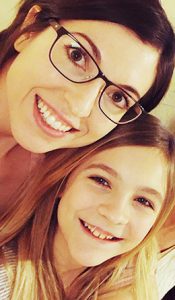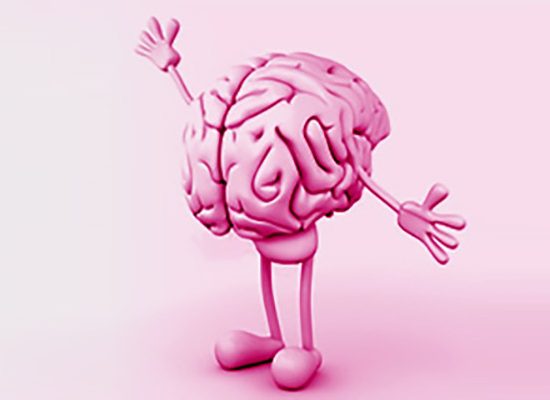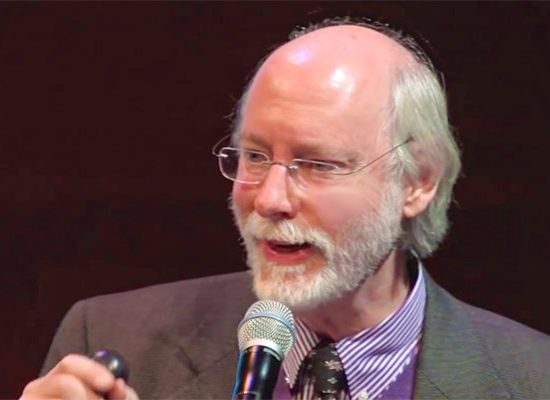On February 15, 2014, my husband and I were coming home from a Valentine’s Day date when we were struck by a drunk driver. After losing awareness for a few minutes, I opened my eyes to loud sounds in my head and my husband asking if I was OK. He handed me his phone to call 911 while he helped the other drivers. That’s when I realized I was very hurt.
I was unable to figure out how to dial 911. When the police arrived and asked for the date, I said my birthday. I could barely hear my thoughts because of loud tinnitus. I wandered to a snow bank that was in the median strip. Everything felt like I was in a dream; everything I did was a mistake. But when the EMTs showed up, I convinced them that I was just tired and needed to go home and sleep.
The Darkest Days of My Life
When I got to work that Monday, I couldn’t concentrate. Within a few days, I could no longer read or comprehend what I was reading. When I was tired, I lost my ability to speak. I was dizzy and couldn’t walk straight. Lights and sounds were so overwhelming I couldn’t be in public places.
I can’t even explain how dark these days felt. I couldn’t be a mother, wife, sister, daughter, or friend. Everyone looked at me and thought I should be the same, but I just sat in my bedroom like a recluse. I couldn’t even figure out how to work the washing machine to do a load of laundry.
My neurologist sent me to the concussion clinic, where we tried physical therapy, cognitive therapy, ocular retraining therapy, vestibular rehab. I saw a chiropractor, an osteopath, and a neurotologist. I was diagnosed with superior canal dehiscence as well as post-concussive syndrome.
By the morning of the fourth day of my TM course it was like a whole new world for me. It was the first day in nearly nine months where I felt normal. I did a load of laundry, and I cried. It was a miracle.
A Life-Changing Prescription: The Transcendental Meditation Technique
Everyone said I’d be better in six months. After six months, I was the same—but I’d lost my job because I needed to go on disability and wasn’t protected by the Family and Medical Leave Act.
After about eight months I had completely lost hope. I went to my doctor to get help.To my surprise, she prescribed the Transcendental Meditation® technique. She said if I tried this for six months and it didn’t work, then she’d consider a prescription drug.
I signed up for an introductory talk with my husband and I started TM® immediately—mostly because I suspected it wouldn’t work, and this was my path to getting a prescription. I couldn’t have been more wrong.
By the morning of the fourth day of my TM course, it was like a whole new world for me. It was the first day in nearly nine months where I felt normal. I did a load of laundry, and I cried. It was a miracle.

When I did my physical therapy or cognitive therapy exercises, which I did to relearn to read and regain other cognitive functions, I felt like I was making progress. Day by day, I was able to do more. Within a couple of weeks, I was cleared to go back to work. My husband was so impressed at the results of my TM practice that he learned, as did our oldest daughter.
My New and Improved Brain, and Life
Today, I still have some residual problems, but from an overall perspective, I’m better today than I was before I learned the TM technique. In addition to getting my old brain function back, I’m more kind, patient, resilient, present, calm, and compassionate.
I don’t sweat the small stuff, and I feel like I know myself better than I ever have before. The relationships I have with my family members are much stronger and more fulfilling—especially with my husband and our three amazing children.
I also co-founded a new company with a friend of mine. It’s called Transcendent, Inc., and it’s a service-disabled, veteran-owned, small government contracting consulting firm.
In addition to that, I work full-time for a government contractor overseeing the contracts of 1,000 court interpreters. This company values my new and improved brain, as evidenced by my stellar performance review and recent awards.
I’m better today than I was before I learned the TM technique. In addition to getting my old brain function back, I’m more kind, patient, resilient, present, calm, and compassionate.
The Power of the TM Technique for Traumatic Injuries
I encourage anyone suffering from a traumatic injury to incorporate the TM technique into their treatment protocol. I feel that my brain wasn’t able to benefit from the conventional therapies and treatments until I started the TM technique. After I began my TM practice, I was experiencing major breakthroughs every few days.
I know my story is anecdotal, but preliminary research shows that TM can be helpful in reducing the need for psychotropic drugs for those with Traumatic Brain Injury. (See note below.) I feel strongly that my TM practice increased the effectiveness of my medical treatments. It was as if the TM technique helped my brain talk to itself again, by opening up pathways that were blocked from the accident.
I’m so grateful for Kathleen Johnson and all the TM teachers in the D.C.-Maryland-Virginia area who have supported me on this path to getting better. The TM program was the missing link that made all my conventional treatments work for me—and I never needed that prescription.
I encourage anyone suffering from a traumatic injury to incorporate the TM technique into their treatment protocol. I feel that my brain wasn’t able to benefit from the conventional therapies and treatments until I started the TM technique.
Jessica Hatchette is a Senior Contracts/Subcontracts Manager and also the Co-Founder of her company Transcendent, Inc. She lives in Potomac Falls, Virginia with her husband Greg and their three children: Mali, Lola, and Enzo.
Editor’s Note: A study published in the journal Military Medicine showed that regular TM practice enables some active-duty service members with post-traumatic stress to reduce or even eliminate their psychotropic medication. “Regular practice of Transcendental Meditation provides a habit of calming down and healing the brain,” said Dr. Vernon A. Barnes, a physiologist at the Georgia Prevention Institute at the Medical College of Georgia at Augusta University. Barnes, the study’s lead author, teaches the TM practice at the Dwight David Eisenhower Army Medical Center’s Traumatic Brain Injury Clinic at Fort Gordon, Georgia. Read more about this study here ►






What a relatable story! Thank you. TM brought me back as well. I never forget the first time session. My brain quieted for the first time in a long time. I know where to go for solutions now. TM. Save a Warrior ?
Thanks so much for sharing your story, Jessica. Your words touched my heart.
Jessica came into my life as a charm, and if she had not told me of the issues she experienced daily one would have never thought she dealt with so much. I am soooooo happy to see that she has achieved such success…. She inspired me every day I saw her face!!!!!
Thank you, Darnell, for sharing more about Jessica with us!
Thanks Darnell! I’m so glad I was able to meet you and become friends! You were one of the first people I met on my very first day back to work after the accident, and you’re a cherished friend!
An amazing story that offers hope to many. It is also good to read of successful alternative treatments to medications. God Bless you!
Thanks for your comment, Bill! We’re delighted to be able to share wonderful stories like these.
Thanks Uncle Bill. 🙂
Thanks for publishing my story! I hope this story and their introduction to TM also helps others find healing.
Thank you for your inspiring story, Jessica! You demonstrate so beautifully, in your life and words, the power of the healing process and how TM can help supplement it. We wish you and your family all the best!